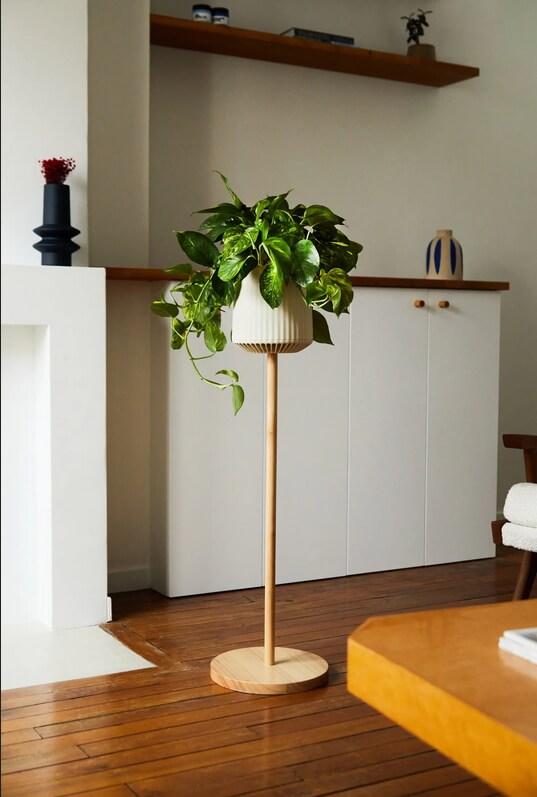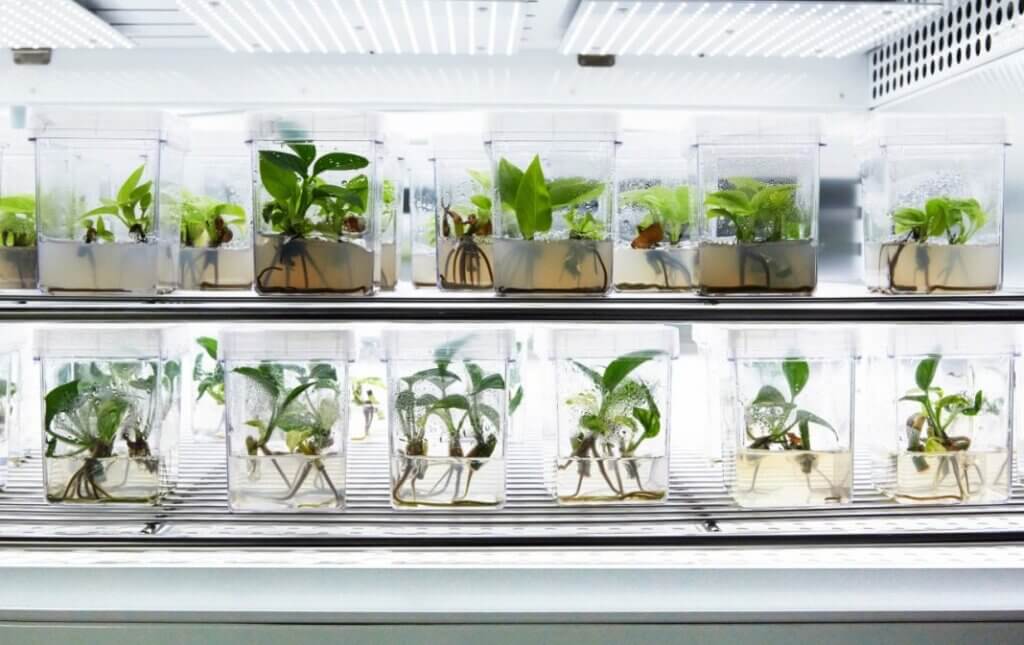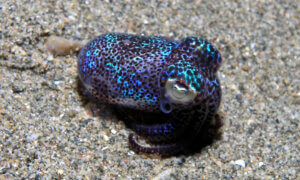We ran our original story on Neoplants back in late 2022, reporting how a single genetically-engineered plant could do the work of an actual indoor air purifier.
Now, the company is back with a few tweaks to this impressive project.
The Neo Px is, at first glance, a regular Pothos plant of the Queen Marble variety, housed in an admittedly sleek pot. However, the plant itself is the culmination of years of research.
Thanks to what the company calls ‘Power Drops’, it can replace up to 30 other plants in cleaning your indoor air of common polutant ands and VOCs like benzene, toluene and xylene.
“The Power Drops are bioengineered microorganisms that enable Neo Px’s Plant-Microbiome system to effectively purify the air in your home. These microorganisms capture, transform, and recycle harmful indoor air pollutants (VOCs) into useful matter,” explains the company.
You just open the small Power Drops package, mix it with water and pour it into the soil, and your NeoPlant will get an air-puryfying boost.
For those who don’t have a green thumb, the Neo PX’s pot is actually a self-watering system that only needs your attention every couple of weeks. For me, that would be the biggest selling point for this. I can cultivate any plant outdoors using smart garden gadgets but fail miserably at any indoor plants, usually because I overwater them.
So, what’s new since we last looked at NeoPlants?
First, the price of these air-filtering plants dropped significantly. You can get a one-time purchase for $139, which gives you the Pothos plant, the self-watering Shell pot and 6 months of the Power Drops.
If you want to bolster the filtering capacity, there’s also an auto-renewal plan that comes with discounts for the Power Drops.
Then, you have the new ‘Shell’ plant pot, which does look amazing and would be a statement piece in any interior design, especially for techies who love the brown aesthetic. Dunno about you but it reminds me of my Noctua coolers.
And, if you want to see how NeoPlants works and how it got started, read our original story below:
You can get a decently-priced and aesthetically pleasing air purifier from Ikea but, thanks to genetic engineering, your plant babies could do the work of filtering your air to remove VOCs.
Meet Neoplants, a startup that just introduced the first genetically-engineered plant that can filter as many volatile organic compounds (VOCs) as 30 other plants famous for their filtering capabilities.
This Neoplant looks like a Pothos, a popular choice for plant lovers everywhere, also known as “devil’s ivy”.
Actually, it is a Pothos, just one that was genetically engineered to be as good as 30 NASA-approved plants that act like air purifiers. This Pothos is called Neo P1 and can be yours for $179 – an eye-popping sum but that’s to be expected considering what it does.

It’s also worth noting that the Neo P1 also comes with a self-watering stand, called the Neoplants Shell, and only needs watering once a month during winter and once every two weeks during summer. Considering the low maintenance and its functionality, which is essentially that of an air purifier, $179 does sound like a fair price.
Since VOCs are molecules coming from most synthetic materials, from paint to building materials, cleaning supplies and even furniture, air purifiers have a hard time filtering such tiny particles – but not plants, which can absorb and metabolize them with ease.
A NASA report from 1989 indicated that plants can be a helpful weapon for indoor pollution and named a few species that are particularly efficient at removing VOCs, like peace lilies, spider plants or devil’s ivy.
Now, the Neoplants startup took one of those plants, popularized by NASA’s recommendations, and boosted its capabilities 30x, hence the high price tag on the Neo P1.
To assuage fears of potentially releasing an invasive species, the engineers from Neoplants say that they only tinkered with the parts of the genome that handle air purification. Specifically, they modified the microorganisms in the plant’s roots. They inserted genes from extremophile bacteria that eat toxic chemicals to boost the plant’s ability to metabolize pollutants.

“We don’t give a selective advantage to the plant. We don’t make it grow faster, we don’t increase its resistance to pesticides,” said Patrick Torbey, the chief technical officer of Neoplants, reassuring potential buyers that “we’re not touching any of that.”
Neoplants plans to apply the technique to other plants in the future but didn’t share what species they’ll engineer next. Fortunately, they say in their FAQ they’re working to release a pet-friendly option in the future.
Since the Neo P1 pothos plant shares the same characteristics and needs of the original plant, it isn’t a plant baby you want around your fur babies.
They also have a countdown timer on their website for their next announcement, which will hopefully be a new plant, and that ends in about two months. You can sign up there for the newsletter and be among the first to receive the news.
Also read: You Might Consider Replacing Your Houseplants With These Algae-Filled Orbs
Follow TechTheLead on Google News to get the news first.

























